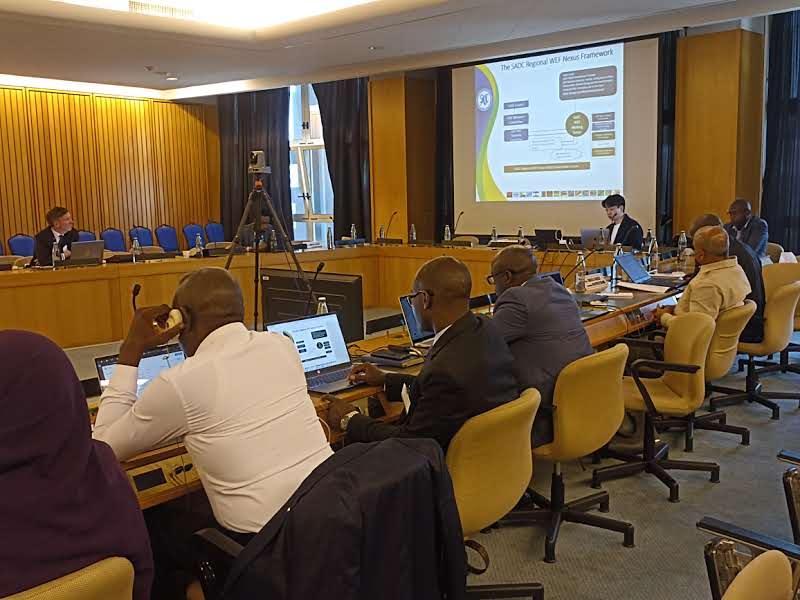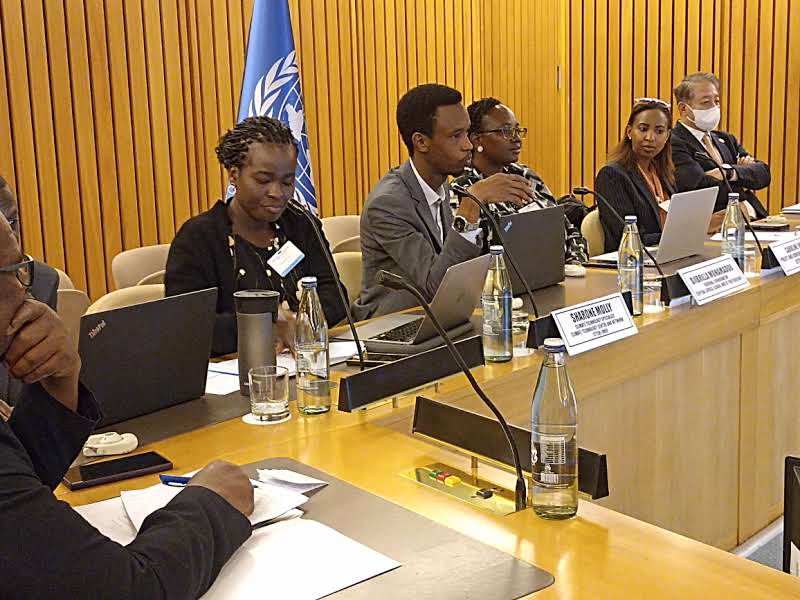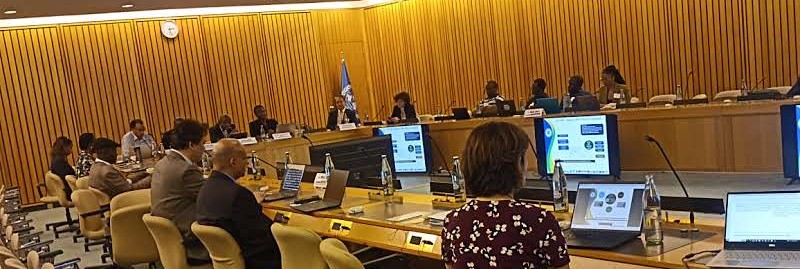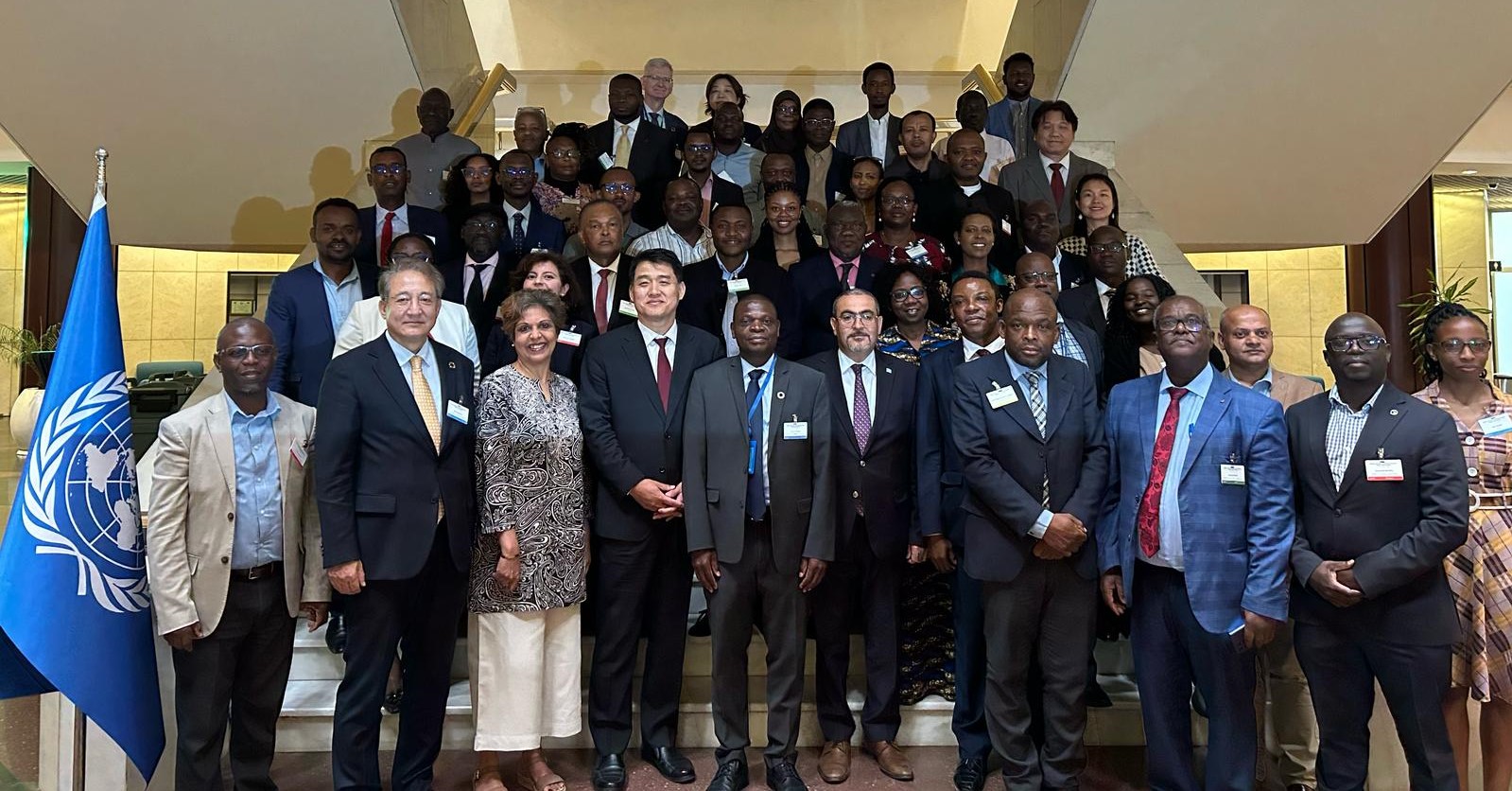Organized by UN Office for Sustainable Development (UNOSD), UNESCO and UNEP-Climate Technology Centre and Network (UNEP-CTCN) in collaboration with other UN organs and key stakeholders, the workshop brought together policymakers at all levels, civil society organisations, youth, academia, and private sector from across Sub-Saharan African countries. The primary objectives of the workshop included strengthening institutional capacity for applying the WEFE Nexus, enhancing policy coherence in alignment with regional strategies, identifying success cases, and promoting integrated solutions for water, energy, food, and ecosystem sustainability.

GWP-CAf’s Regional Coordinator, Djbrilla Mohamadou attended the workshop and shared valuable insights on the role of GWP in supporting Nexus-based governance and project development. During the session on “Challenges and Opportunities in Implementing the WEFE Nexus: Regional success cases”, Djibrilla Mohamadou shared a comprehensive discourse on the organization's global and regional strategies.
He outlined GWP’s mission and its three anchor areas, highlighting the organization’s role in advancing the Nexus approach in West and Central Africa. Notably, GWP’s support to river basin organizations through national and regional dialogues under the GIZ project (2016-2017), which led to the integration of the Nexus approach into the Strategic Action Plan (SAP) of the Lake Chad Basin Commission (LCBC). This success was largely attributed to the existing platform established by Integrated Water Resources Management (IWRM) in the basin, showcasing the complementarity of both approaches. Addressing one of the major challenges in water governance, the Regional Coordinator highlighted the difficulties governments face in sustaining project coordination after donor-funded initiatives conclude. He noted that the sectoral approach remains dominant in many countries, often hindering effective cross-sectoral collaboration.
GWP-CAf has played an instrumental role in mitigating these challenges by supporting the Central African Republic in preparing a concept note for the Green Climate Fund (GCF) and collaborating with ECCAS on a Water-Energy-Food (WEF) Nexus concept note, which was successfully approved under PIDA. Familiar challenges, however, continue to impede project development, like limited technical capacity, insufficient data availability, and staff retention especially for climate finance opportunities.
The coordinator also shared key lessons from Southern African Development Community (SADC), where GWP Southern Africa (GWP-SAf) led the implementation of two phases of an EU-funded Nexus Programme, resulting in the adoption of a regional framework and the identification of key investment opportunities, with four proposals amounting to over $50 million. However, funding remains a critical challenge, one that GWP is actively addressing through partnerships within the Africa Water Investment Programme (AIP) which aims to mobilize $30 billion annually by 2030, leveraging blended finance mechanisms to support the implementation of Water Investment Programs (WIPs) across Africa.

As the workshop concluded, participants reinforced the urgency of collaborative action to strengthen Nexus integration and attract sustainable financing to achieve related SDGs. Key messages were developed for participants to convey to the international community regarding successes, lessons learned, and best practices. With key financial and technical partners leading the charge, sub-Saharan Africa is poised to advance innovative, cross-sectoral approaches that ensure water security, energy access, food production, and ecosystem sustainability for future generations.
Visit [2025] Workshop on Accelerating Progress on the Water-Energy-Food-Ecosystems (WEFE) Nexus in Sub-Saharan Africa | UN Office for Sustainable Development for all workshop presentations and supporting documents.
